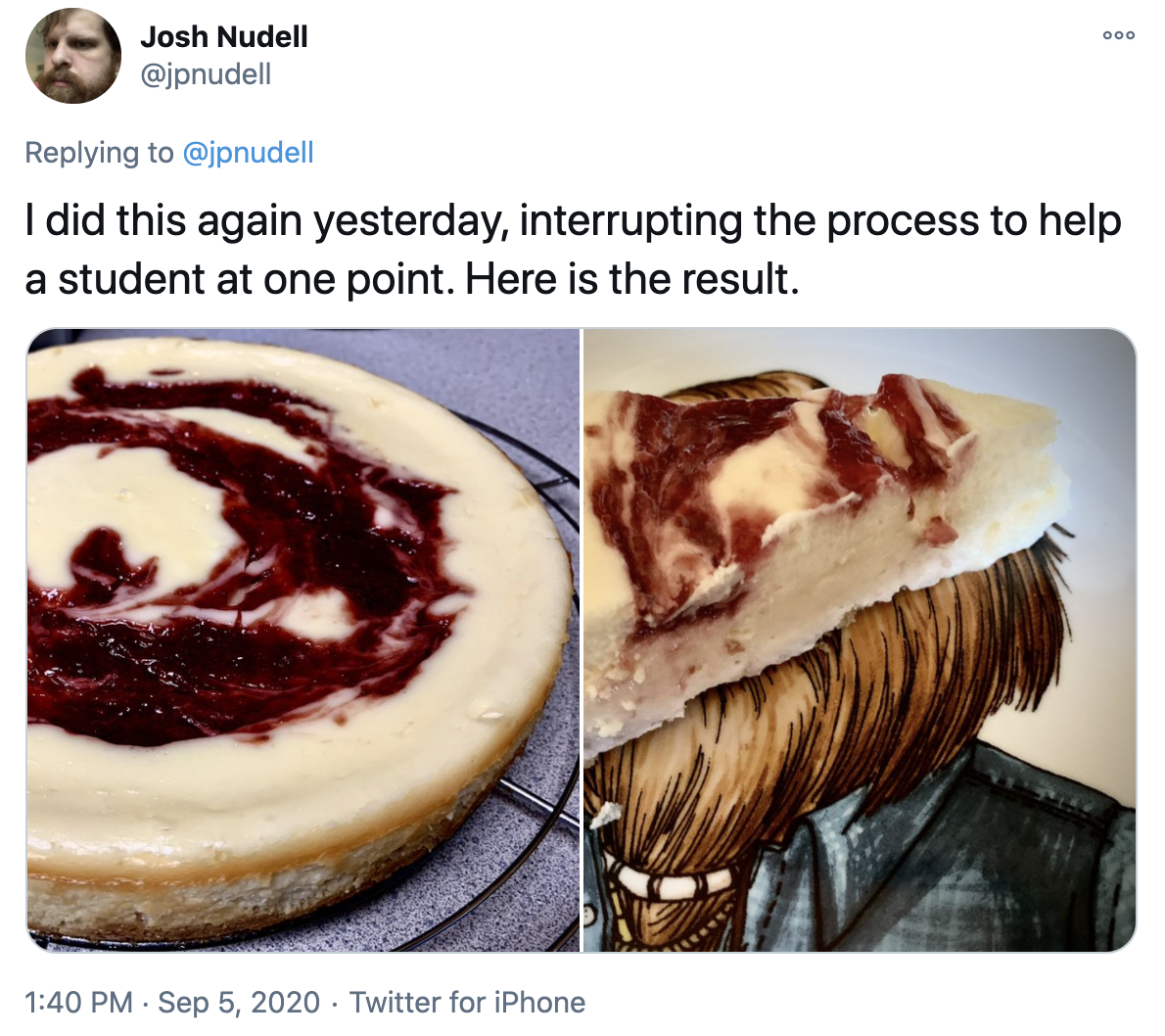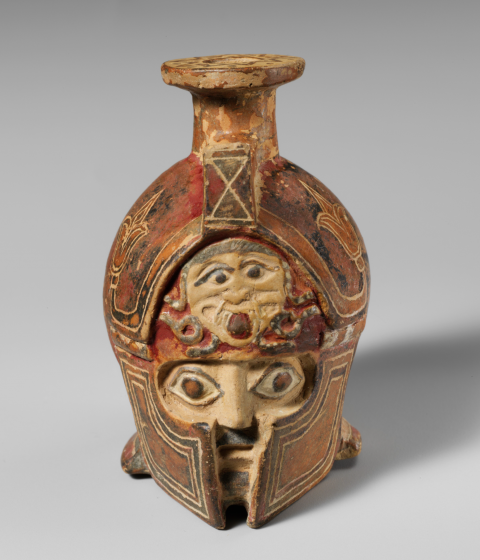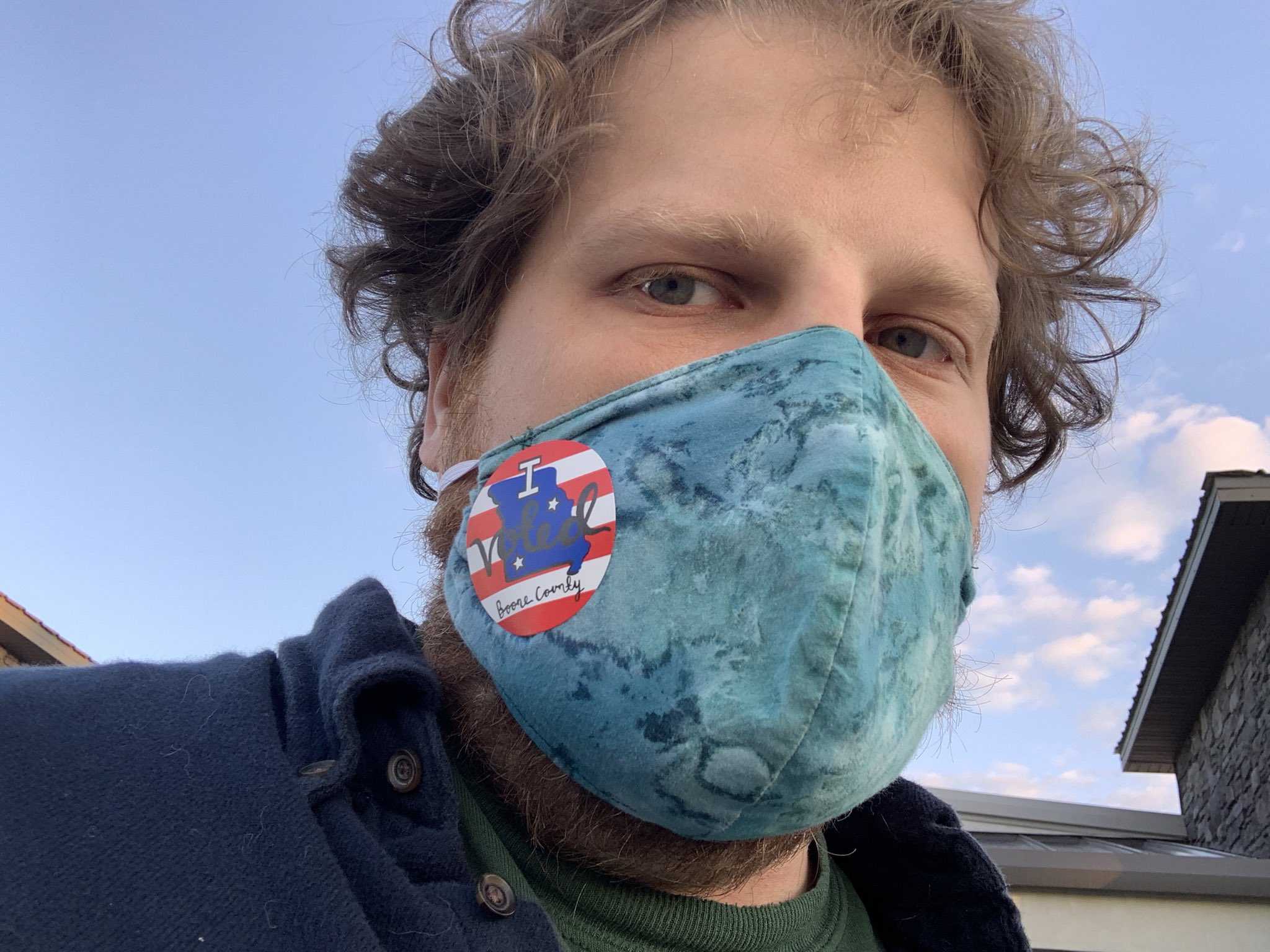Joshua Nudell and Salvador Bartera
December 18, 2020
Our third interview in the Contingent Faculty Series is a digital sit-down between Salvador Bartera (SB) and Joshua Nudell (JN), Visiting Assistant Professor of Classics at Westminster College in Fulton, MO. Prof. Nudell holds a PhD in Ancient History from the University of Missouri. His research focuses on political culture and identity in Classical and early Hellenistic Greece, with particular focus on Ionia and the Greeks of Asia Minor. His monograph, Accustomed to Obedience?: A History of Classical Ionia, is under contract with the University of Michigan Press. Prof. Nudell is also interested in political rhetoric, imperialism, cultural memory, and the reception of the ancient world in games. His other passion involves food, both from a scholarly point of view and from a more ‘practical’, hands-on approach. His teaching experience includes small colleges, community colleges, and a large state university. He normally teaches courses in ancient history.
Figure 1: Prof. Nudell votes in Missouri while masked up.
SB: my first question is necessarily on Covid. How did Covid affect and is affecting both your teaching and your research? Although the economic effects of Covid are unpredictable, it will not be easy for the humanities, and the heaviest burden will be borne by junior and contingent faculty. To make things worse, the job market for next year is bleak. What are your plans for next year?
JN: It isn’t an exaggeration to say that the spring semester 2020 was unlike anything that any of us have experienced. I took my in-person classes at two different institutions online over a weekend. I was more-or-less able to salvage the original course schedule by holding shorter meetings on Zoom and asynchronous pathways for anyone without the technology to handle video conferences. This required more work to film lectures in advance and plan for class, but, since we already had built up a community of learners, we were able to rally together to finish the semester.
This semester has been harder.
I am teaching one course in a virtual synchronous classroom, another is a self-paced online course, a third is a week-by-week asynchronous online course, and two are in-seat, but with a socially distanced classroom and some number of students attending from home. Doing everything at once also makes it harder to perfect any one of these modes of delivery, and has led to a physically, mentally, and emotionally grueling semester.
COVID has also disrupted my research. Limited library access has been a mild inconvenience, but the internet is a boundless resource and the interlibrary loan staff has moved mountains to get me materials. I had to cancel a trip to the Aegean that I had planned for last summer, but I am without childcare or other family responsibilities and most of my research does not depend on getting to an archaeological dig every summer, so, while I have had to confront depression, anxiety, and additional work, there have also been stretches with more time than usual to give over to writing.
More than anything, COVID has accelerated my decision to start looking for a new career. A generous grandmother helping me pay down my student loans and the stability of my partner’s job have allowed me to continue working as a contingent faculty member knowing that I am not going to be put out on the streets.
More than one of the schools I have worked at would probably love to keep me on next year—why wouldn’t they? I’m qualified and cheap—but this has both too little pay and too few opportunities for promotion to be a sustainable career path. I like my work, but the already bad academic job market absolutely cratered last year, and I don’t know when or if it will recover.
SB: You have taught at different institutions. How is the experience of contingent faculty at, say, a community college, different from what you are experiencing at a large state university, in terms of teaching loads, class sizes, benefits, etc.?
JN: On a personal level, the experience of a contingent faculty member depends more on the department than the type of institution. I lucked into my first job out of graduate school when my home department needed someone to pick up courses exactly in my specialty. This department was invested in seeing me succeed and so let me use this job, at least in theory, as a bridge to permanent employment with research funds and a reasonable per-class rate. Other departments have offered professional development opportunities and supported my teaching, albeit with lower pay and without research support.
Semester-to-semester contracts mean regular waves of uncertainty and anxiety. I have not had a course pulled because of low enrollment or been asked to do work on top of my contracted duties—the fact that I’m a white, cis-gendered man likely plays a role here—but I have picked up classes with as little as three weeks before the start of a semester, sometimes without recourse to choose the books, if any actually were assigned, which is a severe impediment to crafting a good course. Even in the cases when I have had adequate prep time, that work is uncompensated.
Once the check comes, the pay usually ranges from “low” to “very low” and, since health insurance and retirement benefits are based on your level of employment at a single institution, I have only qualified for them in one of the past seven semesters. I have supplemented my income by picking up classes at multiple schools, meaning more course preps, more time spent commuting, and more time spent hustling to find work while also applying for stable positions and trying to maintain a strong enough research profile to be competitive for those jobs.
In that working conditions for teachers are learning conditions for the students, this insidious cycle is a serious problem for higher education. When a teacher is required to take on ever more courses to make ends meet, they have proportionally less time to give feedback or to design inventive assessments, if they don’t have to cut corners altogether.

SB: what do you consider your greatest accomplishments as a contingent faculty? What goals has your status as contingent hindered or helped?
JN: The obvious answer here is securing my book contract. Since I have never had research as part of my contract, I have always approached my teaching as my primary job and writing as a second one.
Being contingent has not stopped me from writing, but it has imposed limits to what I can take on. Writing is a habit that needs cultivation. Large course loads make writing difficult during the semester, but teaching has a way of filling every moment you allot it so the same can be said of full-time positions. More problematic, I find, has been making time to do the sorts of focused reading necessary for academic work. These constraints have slowed down my research output and caused me to pass on calls for conference papers because, even if I have the spark of an idea, I don’t have the time to fan that spark into a proper flame.
SB: from January 2021, you will be part of the Committee on Contingent Faculty of the SCS. What are the priorities that this committee should have, in your opinion?
JN: The committee should continue its work with the Coalition on the Academic Workforce. If tenure is dead and just doesn’t know it yet, then there needs to be a new pathway to secure employment in colleges and universities, to ensure both a high-quality education for students and the long-term viability of the field.
Like many other facets of American society, COVID only exposed the fundamental flaws of the system. Schools have used successive economic downturns and austerity regimes as justification for staffing the same courses with contingent faculty members, often on a semester-by-semester basis. As much as these financial concerns are real, they are also the result of choices to stop investing in higher education, as John Warner writes in Sustainable. Resilient. Free. (Belt Publishing, 2020).
I don’t have an easy solution to this downward spiral. Shame might help—my introduction to this committee at the 2018 SCS meeting in Boston was listening to Chris Caterine talk about getting a metric into the college rankings for the percentage of courses taught by faculty on short-term contracts—but we also need other forms of publicity and outreach. Too many people still cling to the myth of the well-paid professor that gets weaponized in an attack on higher education every few months. There are people working to dispel this myth, such as Erin Bartram’s crowd-sourced spreadsheet of academic pay-scales, and the committee should be engaged in this sort of education campaign in tandem with groups in other fields because so long as there is not pressure from the school’s constituents (potential students, alumni, and often politicians) there is not the leverage necessary to reform the current system.
SB: in his recent book, Leaving Academia: A Practical Guide (Princeton, 2020), Chris Caterine, who was among the founders of this committee, is very realistic about job prospects: “only about 1.2 percent of people who enter a doctoral program in the arts and humanities earn a tenure-track position at a leading institution”, he writes. And this was before Covid! What would you say to an undergraduate student who plans to pursue a PhD in Classics?
JN: Know what you’re getting into.
When I started considering graduate school, my beloved and well-meaning advisors warned me that I shouldn’t go if I could imagine doing anything else. I assured them that I couldn’t and was, frankly, too headstrong a 22-year-old to listen to reason—especially in 2008 at the height of the last recession.
When former students ask for graduate school advice, I have them sit down for a meeting in which I explain how graduate school is different from their undergraduate education, covering everything from languages to reading load, and peel back the curtain on the academic job market. My advice boils down to four points:
- You don’t need a graduate education to engage with this topic that you love. If you were going to law school, there are opportunities to put a legal career to work in ways that are adjacent to the field. Or museum work and activism. You can also keep reading books. You can start a blog. You can join conversations on Twitter.
- If you do go to graduate school, a PhD might not be right for you. I fell in love with research and writing during my MA and so continued on to the PhD, but there is nothing wrong with “just” a master’s degree, which represents a smaller investment of your time.
- Make your graduate education work for you. Programs are changing, if slowly, but, in my experience, they are not particularly adept at preparing you for anything but a “traditional” academic career that has been the anomaly for some time. There are specialized programs at your school for fields that are often floated as alt-ac “landing spots” for PhDs. If you might want to pursue a particular field, get to know the people in that program. Take classes. See if you can get an internship. Even without a formal pathway, you will build contacts, references, and experience with that field.
- This is critical: don’t go into debt to get your PhD.
What I don’t do in this meeting is tell them not to go to graduate school.
I am a supporter of widely available graduate education and even wrote a blog post in defense of graduate programs at non-elite schools. However, pursuing a PhD based on passion and Hollywood’s representation of academia is a recipe for disaster. At best, you spend several years enjoying course work before realizing that you don’t actually want to finish the degree. At worst, you suffer mental and emotional trauma, emerge tens of thousands of dollars in debt, and discover that you have lost a decade when you could have been working in jobs where you earned both money and seniority.
Header Image: Terracotta aryballos of a helmeted head (600-575 BCE) now at the Metropolitan Museum of Art (CC0).
Authors



